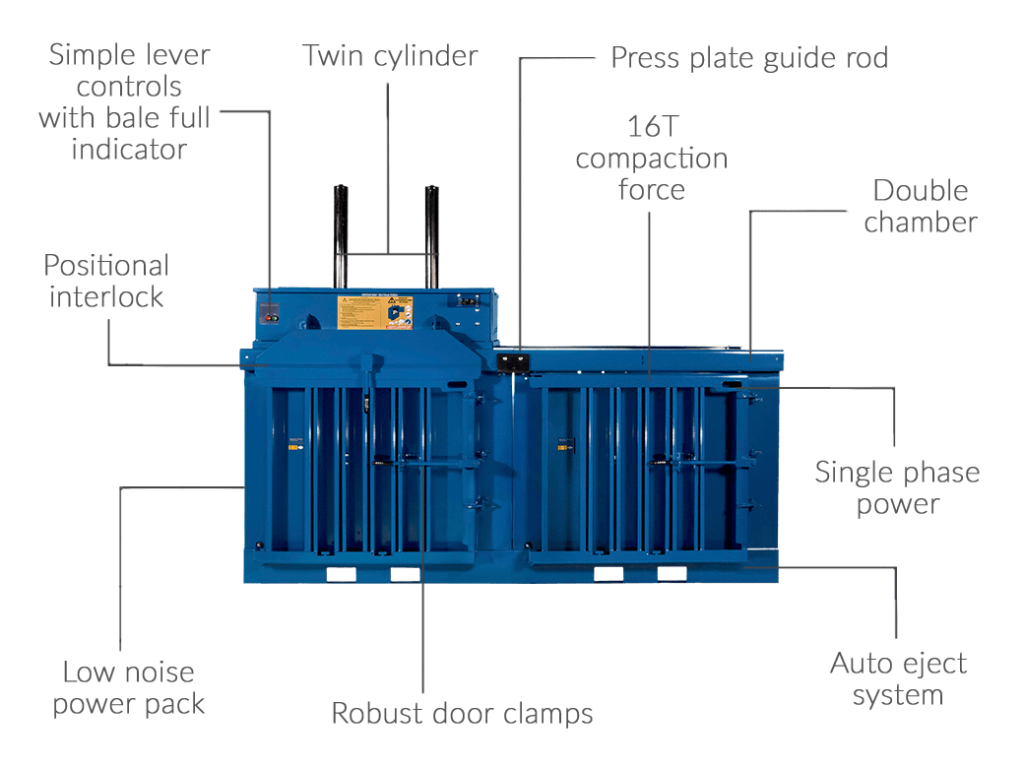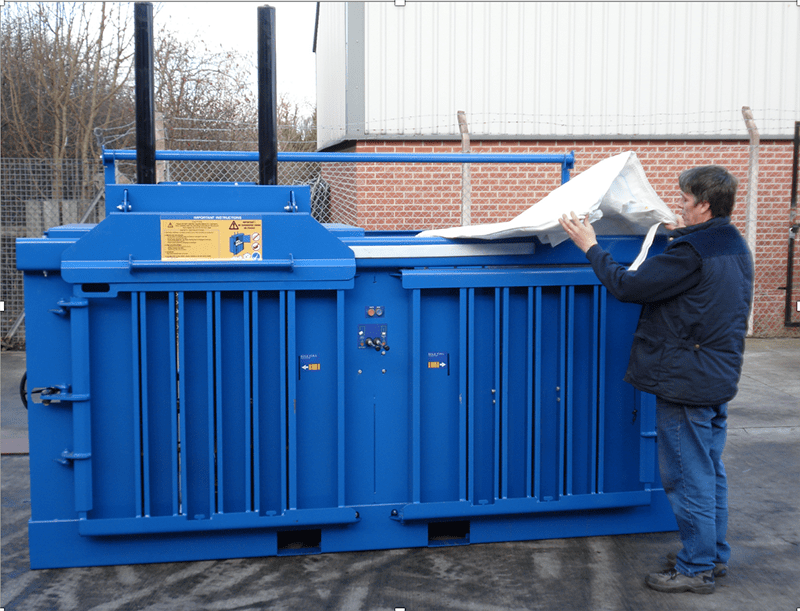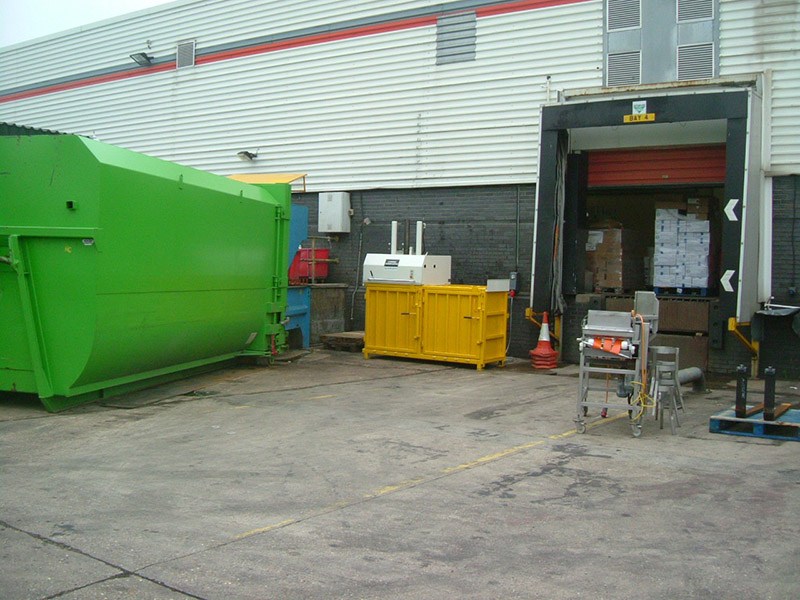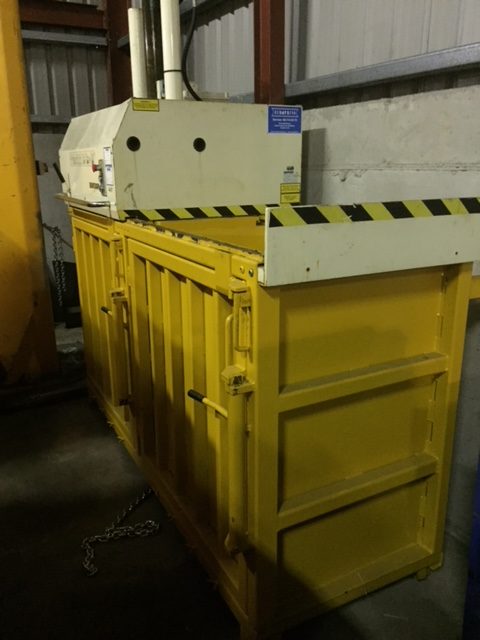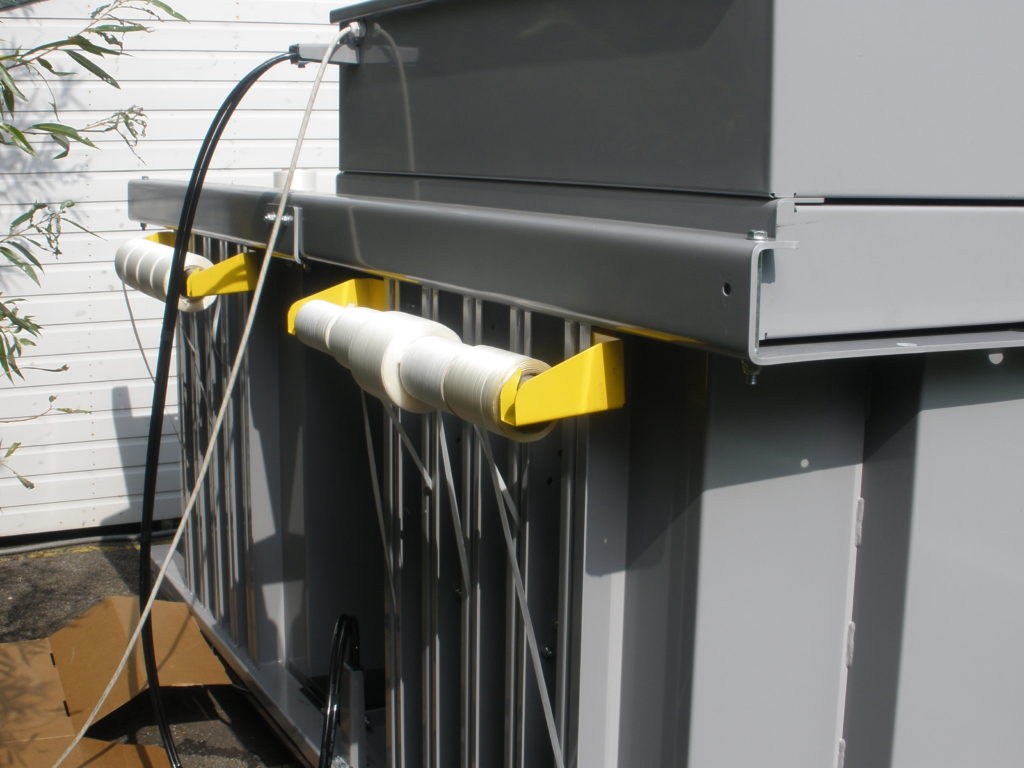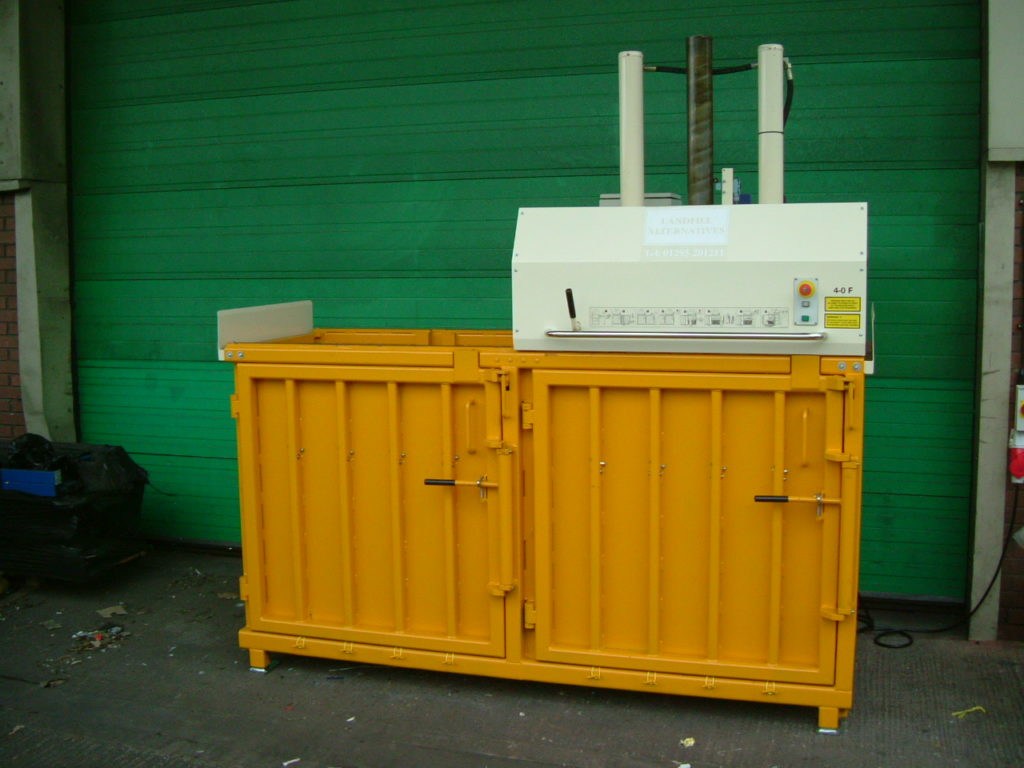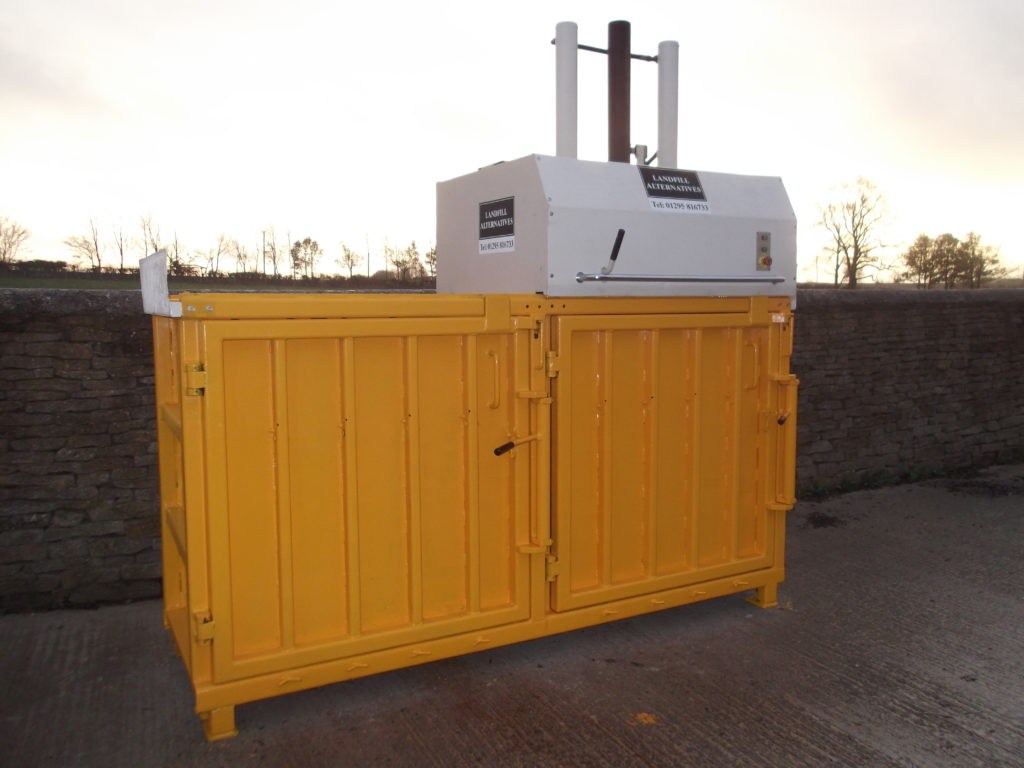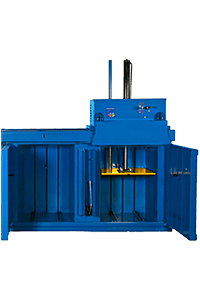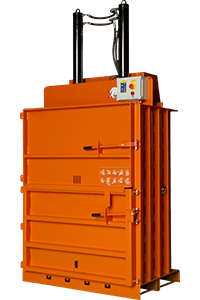LFA 151 D – Double Chamber Baler – Large
The LFA 151 D is our largest double chamber baler and creates bales up to 200kg in weight. It is an ideal machine for two recyclable waste streams because of its two chambers, when one chamber is running a compaction cycle you can continue feeding the other side with material, therefore, eliminating the need to store materials like you would with a single chamber baler. It is best suited for medium quantities and sized material due to its 1075x800mm top feeding openings and with a fast cycle speed of 34 seconds, it quickly bales material up. With an IP rating of 65 it can withstand all forms of weather so it can be sited inside or outside. The LFA 151 D comes with an auto eject feautre which makes bale ejection very easy. The most common types of materials baled are cardboard, plastic film, dry waste and paper, but it can also bale other materials.
Product Details
| Product Dimensions | |
|---|---|
| Overall Width | 3260mm |
| Overall Height | 2500mm |
| Overall Depth | 1270mm |
| Overall Weight | ~1400kg |
| Feed Opening Width | 1075mm |
| Feed Opening Depth | 800mm |
| Technical Specification | |
|---|---|
| Compaction Force | 16T |
| Motor | 2.2kW |
| Cycle Time | 34 Seconds |
| Noise Level | 74dB |
| Electricity Supply | Single Phase, 240V, 16A |
The baler can be specified with a vandal proof cover over the controls and a lockable feed door. Up to six chambers max can be added. For further customisation, contact us and we will try to meet all requirements.
Typically, the minimum amount of recyclable material per week to gain a cost saving would be:
- 1100ltr wheelie bin(s) – Six DMR (Dry mixed recyclables) or Three GW (General waste)
- FEL (Front end loader) skip(s) – Two DMR or One GW
Once baled, the rebate received for the bales would typically be over £20 per ton depending on the material and quantity stored.
- Features
- E-stops
- Two chambers
- Automatic cycle
- Bale twine cutter
- Bale full indicator
- Semi auto bale eject
- Strapping guide slots
- Top loading feed doors
- Safety interlocked doors
- Simple, easy to operate controls
- Retention teeth inside the chambers
- Rated IP65 so safe to be sited inside or out
Benefits
- Reduces disposal costs
- Saves on labour from reduced material handling
- Reduces storage space required for bulky waste
- Reduces the need to flat pack/break down material
- Able to bale multiple waste streams at the same time
- Reduces carbon footprint and complies with ISO 14001
- Leads to a tidier working environment which improves health and safety
The LFA 151 D is very easy to use. All in all, the machine takes roughly 30 seconds to set up and 3 minutes to tie off a bale. Quick and easy!
Step 1 – Setup
When first using the machine, you attach the bale twine reels to the back of the machine and guide the four straps through the rear of each chamber. Pull the twine through, make a loop and attach it onto the four hooks that are positioned on the front of the machine. Lay the twine into the guide slots on the base making sure they are taught. Close the door and you are ready to feed the material.
Step 2 – Feeding
This step is straight forward – slide the cylinder head on top of the other chamber, throw all the material into the chamber, making sure you spread the load evenly (there is no need to flat pack the material as the baler will do all of the work). Slide the cylinder head on top of the chamber and press the ‘go’ button. The plate will automatically run a full cycle compacting all of the material into the bottom of the chamber and catching on the retention teeth. The plate then returns to the resting position ready for the next load. (If at any point you open the front door the machine will cut out for safety precautions).
Step 3 – When is the bale full?
There is a bale full grill positioned on the front of each chamber, when the plate is under full compaction and you can see the plate sat in the middle of the grill, you know that the bale is full and ready to be tied off. Repeat step 2 until this happens.
Step 4 – Tying off the bale
With the plate on top of the other chamber, (using our twine hook) bring the four twines across the top of the bale and feed the four twines through the slots in the front. Cut the twines to the correct length and pull the excess back through the chamber ready for the next bale. Slide the cylinder over the chamber and press the down arrow button for the plate to compact down and stay down. Now that the material is under compression you detach the loop end of the twine from the hook and pull the cut end through. Pull it tight and tie off. Repeat this for the other twines.
Step 5 – Ejecting the bale
Now that you have created a bale, you need to remove it. Press the up arrow on the machine for the press plate to come back into its resting position, slide the cylinder across to the other chamber, open the front door and place a pallet in front of it. On the control panel hold the eject button and the go button. The bale will start tipping and with momentum, the bale will slowly roll onto the pallet. You now have a bale weighing up to 200kg sat on a pallet ready to be stored for collection.
As simple as that! It probably takes longer to read the operation than to implement it. As part of the package, one of our trusty engineers will come to site and show the team how to do this in person. Training certification can be supplied if required.
*Note – Refurbished models may vary in its operation slightly, but the principle will remain very similar.
LFA 151 D – Double Chamber Baler – Large Brochure
Interested in learning more about the LFA 151 D – Double Chamber Baler – Large? Leave your details below to get an instant free copy of our brochure.
Benefits of Baling
-
Reduce carbon footprint and comply with ISO 14001
-
To reduce storage space required for bulky waste
-
Reduce disposal costs and receive maximum income on the baled material
-
To lead to a tidier work environment which improves health and safety
-
To reduce the need to flat pack/break down material
-
To save on labour from reduced material handling
More Questions Than Answers?
We appreciate that our comprehensive range of machinery can sometimes make it difficult to find the right machine to suit your requirements.
Our Product Finder tool makes it easy to find the perfect Baler, Crusher or Compactor to satisfy your business requirements.
Show MeRequest a callback
Prefer to speak to us in person? Then leave your details below and a member of the team will be in touch shortly.
